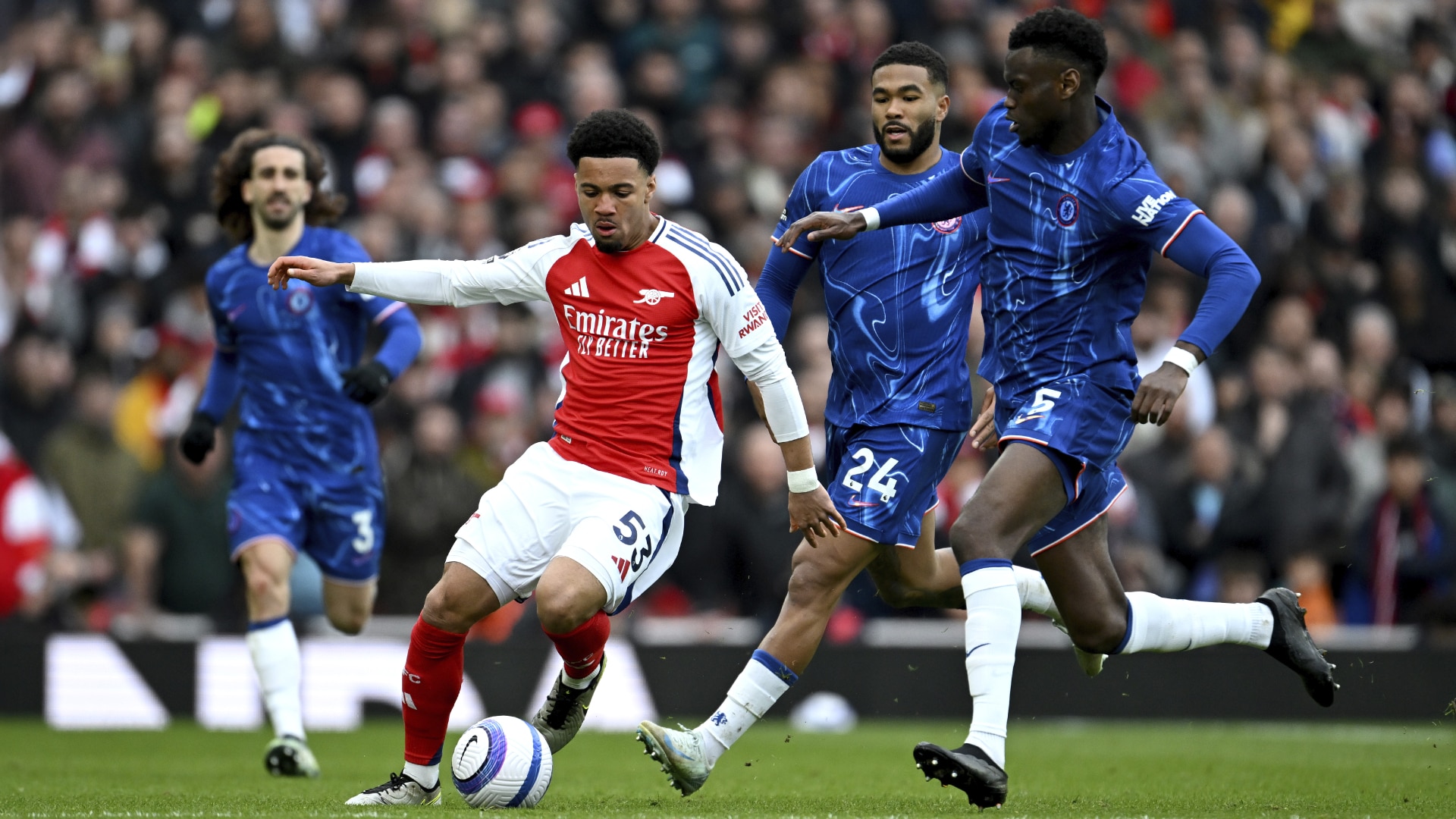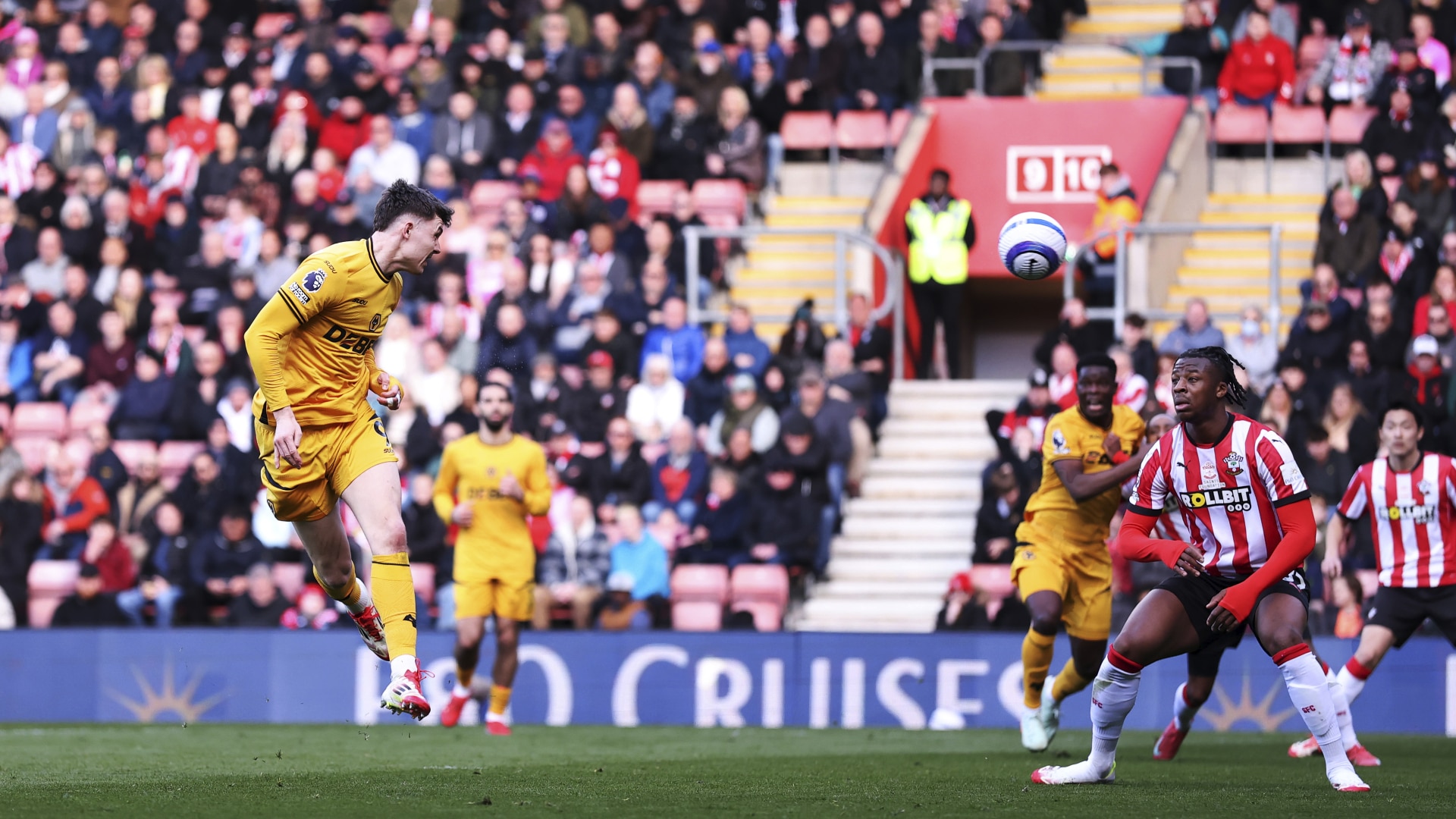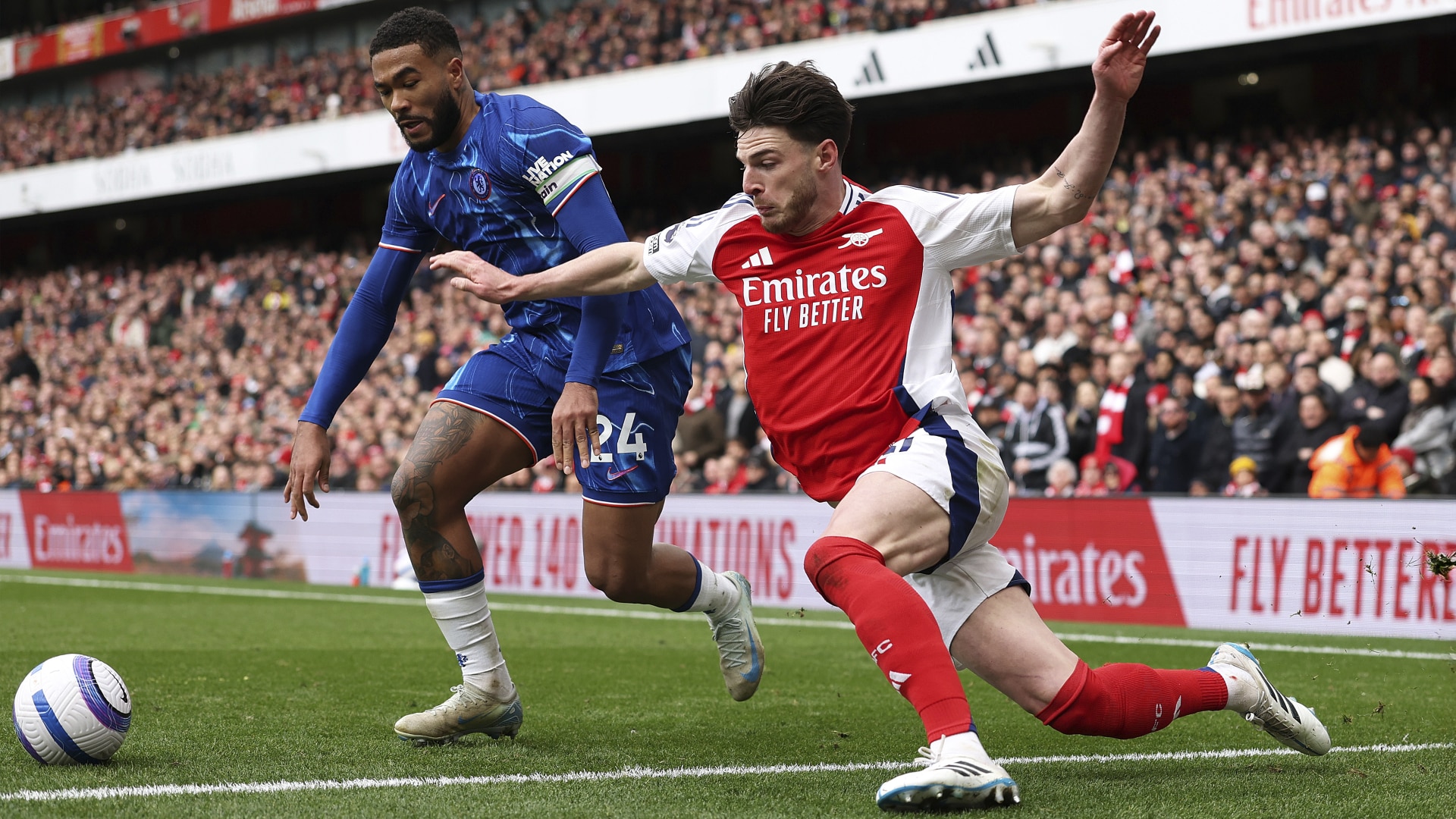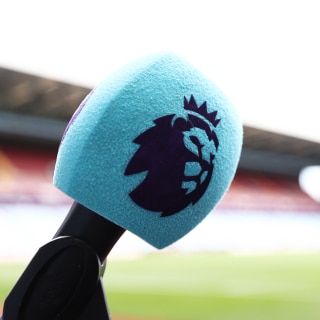Hello and welcome to the Premier Skills English podcast. This new series of Football English podcasts are based around the needs of football players and football fans and will present language you need to play the game, language you need to watch the game on TV and online and language you need to travel to the UK to see a match at a Premier League stadium.
Today, I am focusing on language that will help you understand match commentary on TV. If you are watching a Premier League match and the commentary is in English, if you know what to expect, hopefully, this will make the commentary easier to understand. To help me this week, I have invited my AI friend Tom to join me.
Hello everybody. I am Tom the AI commentator. It’s good to be here.
Thanks Tom.
In this podcast, I’m going to talk about thinks that you should be prepared to hear when you are listening to commentary on a football match and hopefully, if you are prepared, it will be easier for you to understand what you hear. But before I get to the language of TV commentary, I want to remind you that if you are listening to this podcast on Apple podcasts or Spotify, you should also visit the page for this podcast on the new Premier League British Council partnership website at premierleague.britishcouncil.org
On the page for this podcast, you’ll be able to read the transcript. If you find it difficult to understand me, it might be easier to read what I’m saying at the same time and the entire transcript is available on the page for this podcast. You will also find some language activities to help you practice using some of the new vocabulary and then there will be a discussion task and a football phrase.
Before I start talking about the language of TV commentary, I want to quickly talk about last week’s football phrase and give you one more chance to guess.
I’ll get Tom to read out last week’s clue. Is that OK Tom?
No problem, Jack. Last week, the football phrase was just a word. In fact, I think it’s the shortest ever football phrase and I have taken this word from the football vocabulary 200 words section on the Premier League British Council website. The word is ***. This word is something that players wear when they are training if they are playing conditioned games or doing training exercises in teams. It’s like a little vest that players wear over their t-shirts. We use the same word to describe something that’s like a little towel that we put around a baby’s neck when they are eating to stop them getting food on their clothes.
Congratulations to Nicolas from Colombia for getting the phrase right this week. The answer was bib. Keep listening till the end of the podcast for a new football phrase.
The easiest thing to prepare your ears before you watch a football match is to make sure you know all the names of the players on both teams, that will help you a lot. Sometimes, the commentators probably don’t pronounce the names in the same way that the players pronounce their own names, so if there’s a player from your country in the team, pay attention to how badly the commentator pronounces it. I think that commentators are more respectful of players and other languages these days, but I sometimes find it hard to work out who they are talking about without the team sheet in front of me.
At the start of the match, the commentator will usually talk about the match context; the relative position of the teams in the league and their form in recent matches. They also talk about the formation and the players that have moved into and out of the starting line up since their last match.
And there’s the starting whistle and the match is underway.
During the match, the commentator will describe what’s going on, describe the action play by play using present forms. I’ve compared the language of a few commentators and they vary quite a bit in how they commentate and in the forms they use. So in one match, the commentator used the present simple for almost everything while another commentator used a lot of present continuous phrases and in another, the commentator hardly described the plays and only said the name of the players, only commenting on shots and fouls after they happened.
I think that commentary is probably a good source of English for learners because a lot of the language is predictable. You know that the commentator is going to use the names of the players, and the words shoot, score, save, goal and foul so you can probably follow the commentary most of the time even if you don’t understand much else. However, there are some aspects of commentary that make it very difficult to understand.
I’m going to talk about five features of football commentary that I think you should be prepared for and that you should Listen out for when watching a match on TV.
1. Complex football vocabulary
Most of the football English you’ll hear in the play by play descriptions will be straight forward. However, the commentators will sometimes use more complex language. In some of the commentary from the matches over the weekend, I made some notes and heard descriptions that included the ball being whipped away, turned away and hacked away, all used to add some variety and character to what would normally be described as clearing the ball. One commentator always used the phrasal verb to pick out a player instead of pass to a player and for another, the ball was constantly dropping for players when they were able to get to the ball. I will do a more careful analysis of complex football vocabulary for a future podcast.
2. Reduced forms
When commentators are describing the play by play action, they don’t have a lot of time. So, they employ special strategies to help them communicate the most important information. One of these strategies is to use reduced forms. I’m not even sure if this is the right way to describe this, but basically, the commentators sometimes drop auxiliary verbs. So this weekend, I heard:
Liverpool looking menacing
Southampton leading after the break
Going for the same ball
No one marking Domingues
Very close to going in. Good goalkeeping.
As well as reduced continuous forms, I heard reduced perfect forms like:
Delap ... given it to Milenkovic and Nottingham Forest take the lead 10 minutes before half time
Another reduced form that I heard a few times were participle clauses. These are normally more common in written English, but heard them a few times in commentary. Mostly present forms like:
Bursting through, Ugochukwu’s found Kameldeen Sulemana
Popping up on the right hand side, Bellgarde
3. Judgements using should have
Throughout the match, players make mistakes and commentators judge them for it. So if a player has a good opportunity to score and misses then the commentators will often say that should have been a goal. On one occasion, when a player headed the ball wide, the commentator said he should have put it between the posts. This form is most commonly used to express regret. I should have studied harder before my exam or I shouldn’t have stayed up so late. However, you can use it to judge others. In the matches I watched, if a player missed, the commentator said he should have scored and if he scored then the goal keeper should have saved it. What makes this form extra difficult is the connected speech. We say: should have. The have is really weak. Lots of native speakers make grammatical mistakes and write this as should of because it sounds the same. Listen to this quote from the weekend.
Not Aaron Ramsdale’s finest moment. It’s a good ball in but Aaron Ramsdale should have saved it.
4. Cliches and metaphors
Football commentators love to make their commentary more colourful by using cliches and metaphors. Sadly, I think that commentators are using metaphors and cliches less these days. There is a comedian called Steve Coogan who plays a character called Alan Partridge who was a football commentator. This character made fun of silly cliches and commentary and now commentary is less colourful, but it’s still quite a rich form of language. These are often quite advanced uses of English and I’m not sure that I can give you much advice about how to prepare for them. There are hundreds of examples of cliches in the Premier Vocabulary section on the Premier League British Council website so you can always try to learn some. One piece of advice is to listen out for metaphors related to trains. For some reason, commentators seem to like train metaphors. Some fun examples I heard this weekend included:
Tottenham’s attack stalled, running into west London traffic.
An early goal was the worst possible start to the second half for Southampton.
Elanga couldn’t believe how the seas just parted in front of him.
5. Present perfect
I don’t think that this should make commentary particularly difficult to follow, but it might help if you listen for examples of the present perfect. We use the present perfect when we’re talking about an unfinished time period. So you’ll hear more examples of present perfect comments in the second half, referring to the match and what has happened so far and more generally, comments about the season which also hasn’t finished.
Here are some examples from this weekend:
Fernando has found Hojland ... the flag stays down for now.
It has now been checked and the yellow card has been confirmed
Christian Erikson hasn’t scored in the Premier League in months and he won’t have come much closer than that.
Chelsea started the day as a top four club. They haven’t looked like a top four club for much of this game.
Chelsea’s two attempts to test the goalkeeper have both been by Cucurella.
If you visit the page for this podcast, you will find some activities to help you practise some of the language from this podcast and you’ll also find some discussion questions about the next podcast. For the next podcast, I’m going to talk about Travel to the UK to watch a football match. So my questions for you this week are:
- Have you ever travelled to the UK to watch a football match?
- If so, how was it?
- Did you have any problems getting to and from the match?
- Did you have any problems with your travel or hotel?
- And if you have not travelled to the UK to watch a match, can you tell me about the last time you travelled out of your country?
- Where did you go and why?
- Did you have any problems with your travel or accommodation?
Let me know in the comments section on the page for this podcast on the Premier League British Council website and if you would like to be in the next podcast, you can leave me a message on the Premier Skills English whatsapp. The number and a link are available on the page for this podcast.
The last thing this week is a new football phrase. Today, I have selected a phrase from some commentary that I heard this weekend. The phrase is ** *** *** ****. This describes a goal that rebounds off the upright and into the net. If you need a clue, search for Estupiñán’s goal for Brighton against Man City from a free kick.
This one is a bit harder so I wonder if any of you will get it. If you can work it out, you can leave the answer in a comment on the page for this podcast on the Premier League British Council website.
And that’s all I have time for today. Before I finish, I just wanted to say that I hope you found this podcast useful, and I hope everyone stays fit and healthy and safe.
Bye for now and enjoy your football.












Hi Jack! The podcast was really insightful. The phrase was '** *** *** ****'! I watched the game, and it was incredible, what a goal!